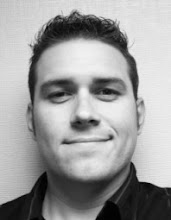Professors’ Liberalism Contagious? Maybe Not
By PATRICIA COHEN | New York Times | Published: November 2, 2008
"An article of faith among conservative critics of American universities has been that liberal professors politically indoctrinate their students. This conviction not only fueled the culture wars but has also led state lawmakers to consider requiring colleges to submit reports to the government detailing their progress in ensuring “intellectual diversity,” prompted universities to establish faculty positions devoted to conservatism and spurred the creation of a network of volunteer watchdogs to monitor “political correctness” on campuses."
[...] "If there has been a conspiracy among liberal faculty members to influence students, “they’ve done a pretty bad job,” said A. Lee Fritschler, a professor of public policy at George Mason University and an author of the new book “Closed Minds? Politics and Ideology in American Universities” (Brookings Institution Press).
The notion that students are induced to move leftward “is a fantasy,” said Jeremy D. Mayer, another of the book’s authors. (Bruce L. R. Smith is the third co-author of the book.) When it comes to shaping a young person’s political views, “it is really hard to change the mind of anyone over 15,” said Mr. Mayer, who did extensive research on faculty and students.
“Parents and family are the most important influence,” followed by the news media and peers, he said. “Professors are among the least influential.”
A study of nearly 7,000 students at 38 institutions published in the current PS: Political Science and Politics, the journal of the American Political Science Association, as well as a second study that has been accepted by the journal to run in April 2009, both reach similar conclusions.
“There is no evidence that an instructor’s views instigate political change among students,” Matthew Woessner and April Kelly-Woessner, a husband-and-wife team of political scientists who have frequently conducted research on politics in higher education, write in that second study."
As an adjunct faculty member, I've occasionally run into the accusations of bias in the faculty (though fortunately not against me). It's good to finally see some quantitative numbers to back up what most educators have known for years. Virtually all of the faculty members I know (and that I've ever had as a student) have always taken great pains to be fair and impartial in their handling of politics whenever those issues come up.
Often times they'll seek to avoid or narrowly-confine political discussion in class, I think, because they're well aware of the inequitable distribution of power in the student-teacher relationship and don't want students to feel intimidated (either by a professor's status as 'learned' or through reprisal in the grading process).
I've observed that many faculty seem to enjoy playing the "Devil's Advocate" just to stimulate debate and critical thought in class when a discussion becomes too one-sided (which sometimes surprises the student who had counted on the professor to back them up as an ally on a particular point given their interpretation of that faculty member's political biases).
The most skilled can make it impossible to gauge what their political leanings are; arguing just as effectively and persuasively for all sides (I can think specifically of Mr. Mott back in High School - who was able to remain completely opaque, despite the best efforts of students to figure him out). I attempt to toe this line, but I confess that I think my own abilities fall sort of this standard.
Monday, November 10, 2008
Subscribe to:
Post Comments (Atom)


No comments:
Post a Comment